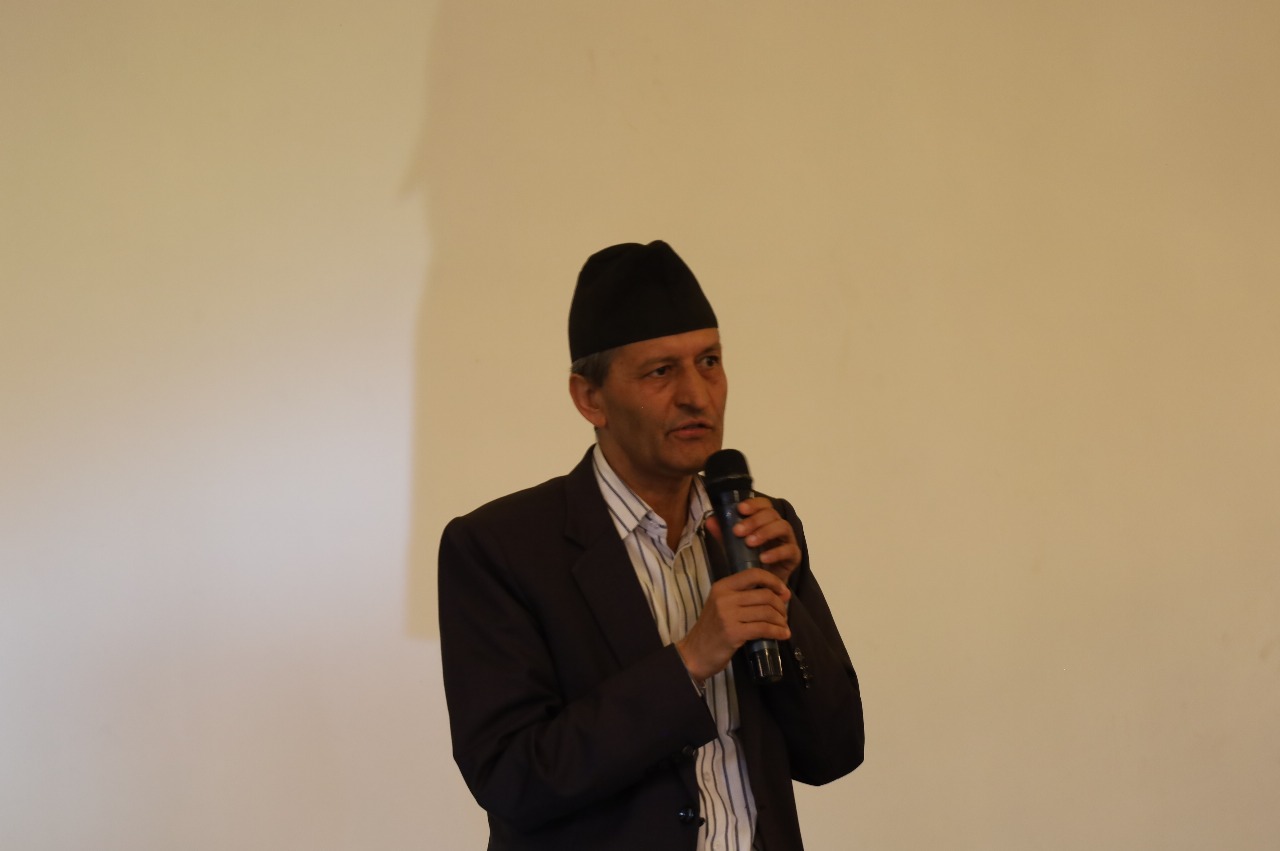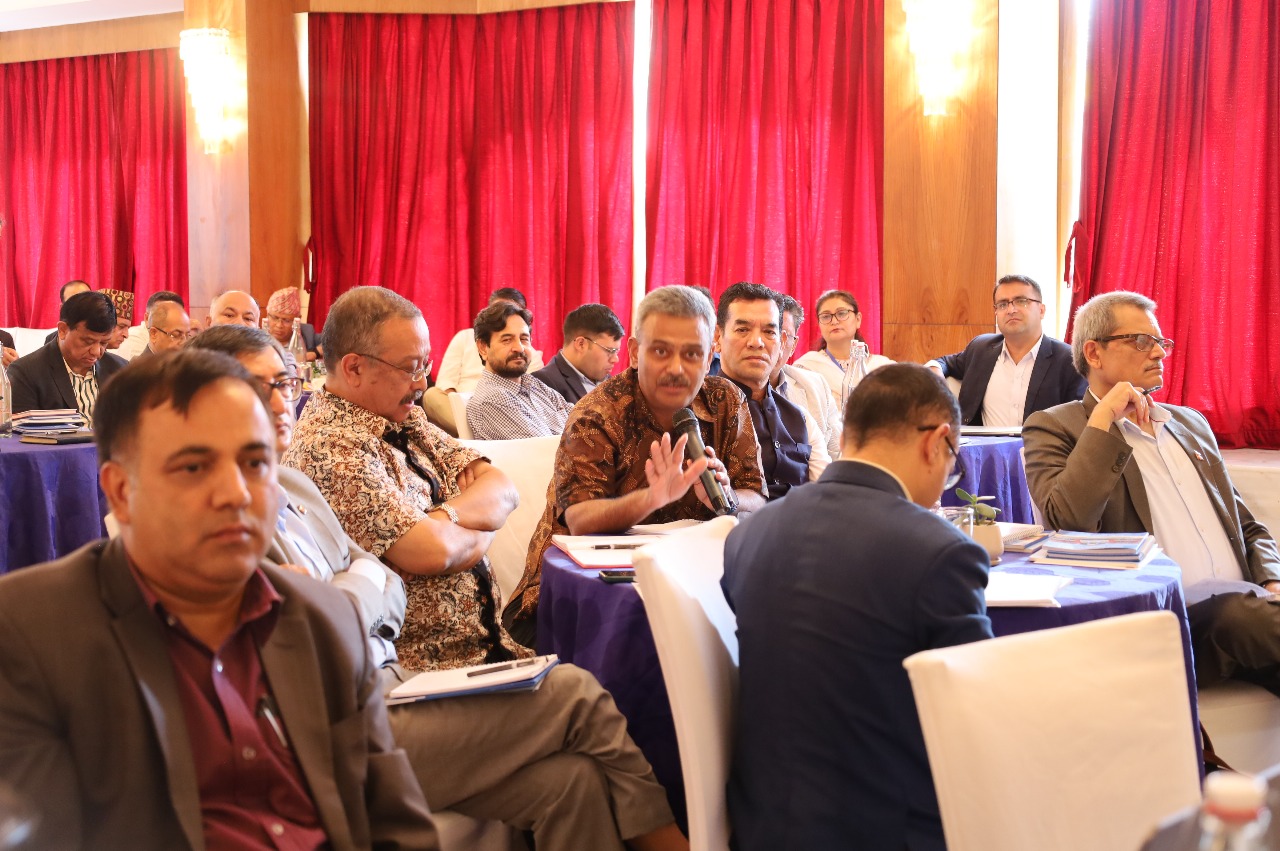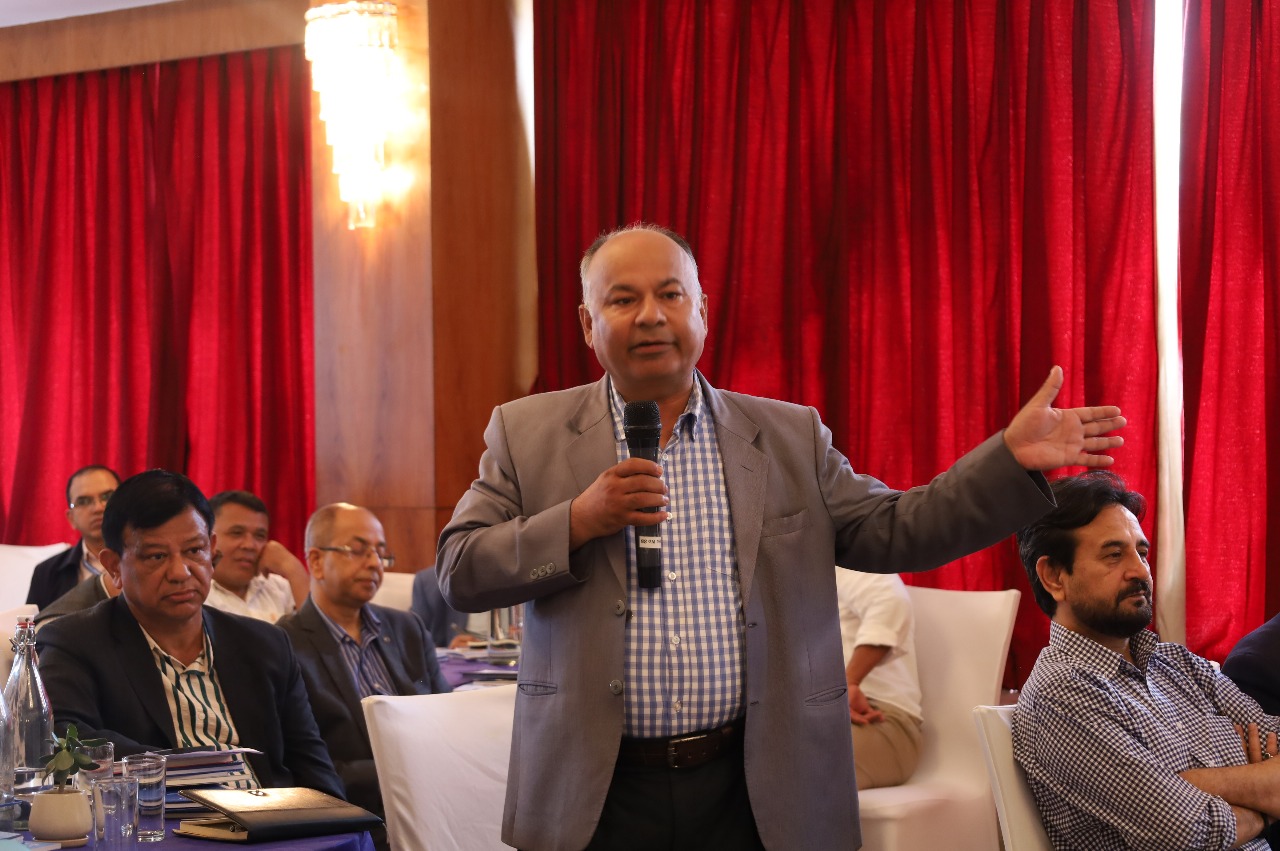
Jul 04, 2025
Workshop on Enhancing Permeability of CTEVT Diploma-level Engineering Graduates Concluded
Lalitpur, July 4, 2025 – The Council for Technical Education and Vocational Training (CTEVT), in close collaboration with the Ministry of Education, Science and Technology (MoEST), organized a national-level consultative workshop titled Enhancing Permeability of Diploma-level Engineering Graduates on Friday, July 4, 2025, at Hotel Himalaya in Kupandol, Lalitpur. The workshop aimed to gather feedback and build support for a draft concept developed by Dr. Rajendra Prasad Adhikari, which proposed strategies to improve the permeability of diploma-level graduates from CTEVT.
 The event began at 8:00 AM with a welcome address by Mr. Baikuntha Aryal, Joint Secretary from the MoEST. This was followed by a presentation of the draft concept on easing the permeability of CTEVT diploma-level engineering graduates by Dr. Adhikari, which was based on extensive research, including analysis of the national context and international practices.
The event began at 8:00 AM with a welcome address by Mr. Baikuntha Aryal, Joint Secretary from the MoEST. This was followed by a presentation of the draft concept on easing the permeability of CTEVT diploma-level engineering graduates by Dr. Adhikari, which was based on extensive research, including analysis of the national context and international practices.
A key segment of the workshop was an open discussion session. Participants shared thoughtful suggestions and feedback on the draft concept presented. University representatives expressed readiness to create suitable programs for diploma graduates. TVET experts said diploma holders should be competent and seen as key contributors to national development. They highlighted the importance of implementing the National Qualifications Framework (NQF) to make the transition smoother. The framework envisions the eight levels of qualification including the National Vocational Qualifications Framework (NVQF), which was approved by the Government of Nepal on 3rd May 2020. They also called for the full implementation of the TVET Sector Strategic Plan (TSSP, 2023–2032). Private sector representatives pointed out a skills gap in the labor market, forcing them to bring in skilled workers from abroad. They expressed willingness to work with CTEVT to close this gap and strengthen partnerships.
Engineer Mahesh Bhattarai, Member Secretary of CTEVT, reaffirmed the council’s commitment to reforming policies so technical graduates can have better access to further education and career opportunities. He emphasized the importance of quality and shared examples of current good practices, such as updating curricula to match market needs, recognizing prior learning, conducting skill testing and certification, and providing high-quality instructor training. He also shared that CTEVT is working to amend the CTEVT Rules, 2051 to incorporate the National Vocational Qualifications Framework (NVQF). According to him, the approval of the amended CTEVT Rules would mark a significant and transformative milestone for the TVET sector in Nepal.
The event concluded with closing remarks by Mr. Baikuntha Aryal, who summarized key points from the discussions. He noted that society’s preference for white-collar jobs affects interest in TVET and called for a shift in perception. He identified four main takeaways from the workshop:
- Curricula should align with labor market needs;
- Lateral entry options should be created for diploma graduates;
- A credit transfer system should be developed; and
- Bridge courses should be offered to support diploma graduates transitioning to further education and training.
In addition, he informed participants that the bills related to the National Qualification Framework (NQF) and Federal Technical and Vocational Education and Training (TVET) are currently in the pipeline.
 The workshop brought together over 70 participants. Attendees included senior officials from key ministries such as the Ministry of Education, Science and Technology, Ministry of Labor, Employment and Social Security, Ministry of Health and Population, Ministry of Finance, and Ministry of Industry, Commerce and Supplies. Other participants came from the Public Service Commission, National Planning Commission, Teacher Service Commission, major universities including Tribhuvan University, Kathmandu University, Purbanchal University, Manmohan Technical University, and Madhesh University, as well as professional councils like the Nepal Engineering Council. Representatives from industry associations such as FNCCI, CNI, HAN, and FNCSI were also present at the program. Attendees also included distinguished TVET experts and representatives from Sector Skill Committees.
The workshop brought together over 70 participants. Attendees included senior officials from key ministries such as the Ministry of Education, Science and Technology, Ministry of Labor, Employment and Social Security, Ministry of Health and Population, Ministry of Finance, and Ministry of Industry, Commerce and Supplies. Other participants came from the Public Service Commission, National Planning Commission, Teacher Service Commission, major universities including Tribhuvan University, Kathmandu University, Purbanchal University, Manmohan Technical University, and Madhesh University, as well as professional councils like the Nepal Engineering Council. Representatives from industry associations such as FNCCI, CNI, HAN, and FNCSI were also present at the program. Attendees also included distinguished TVET experts and representatives from Sector Skill Committees.

